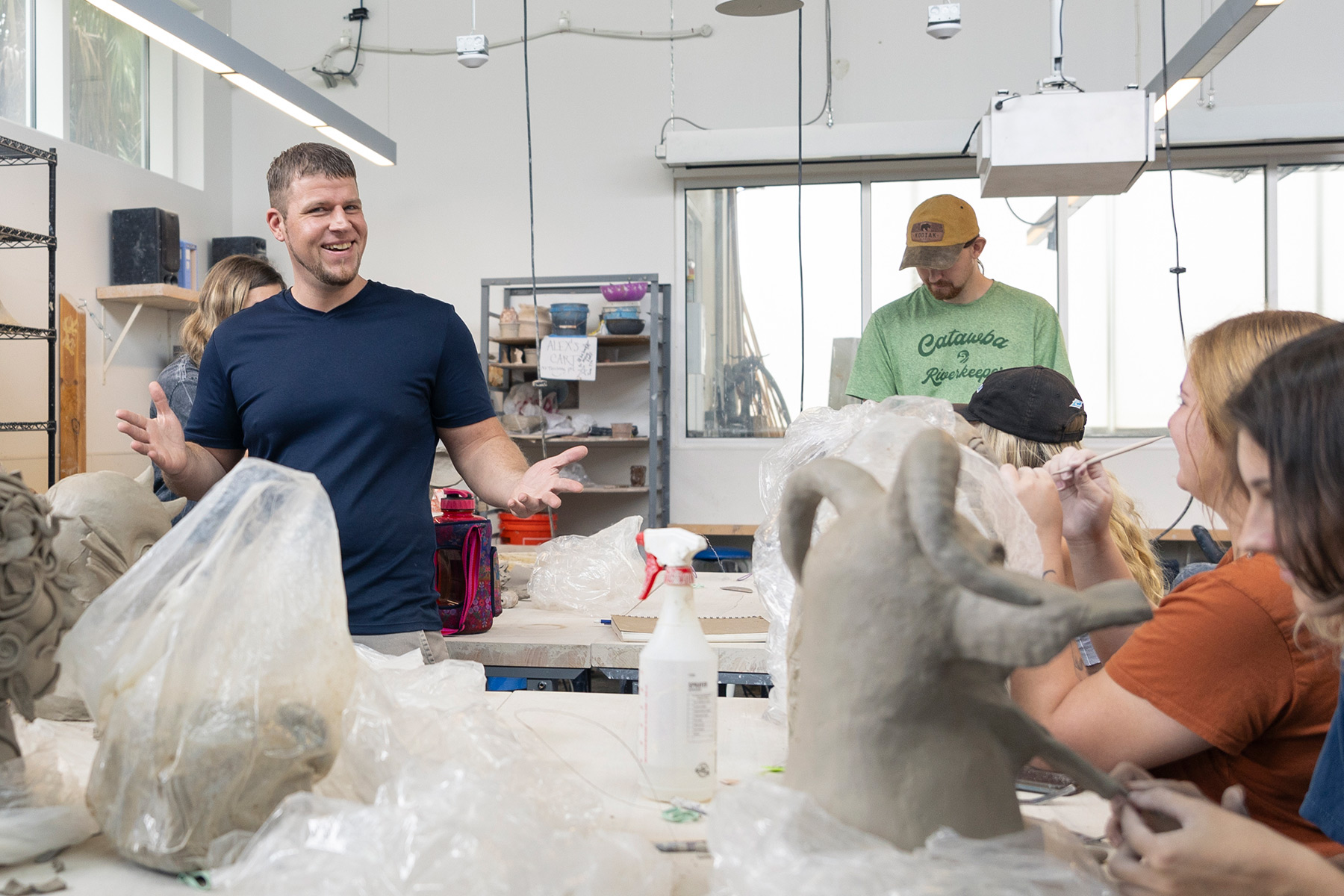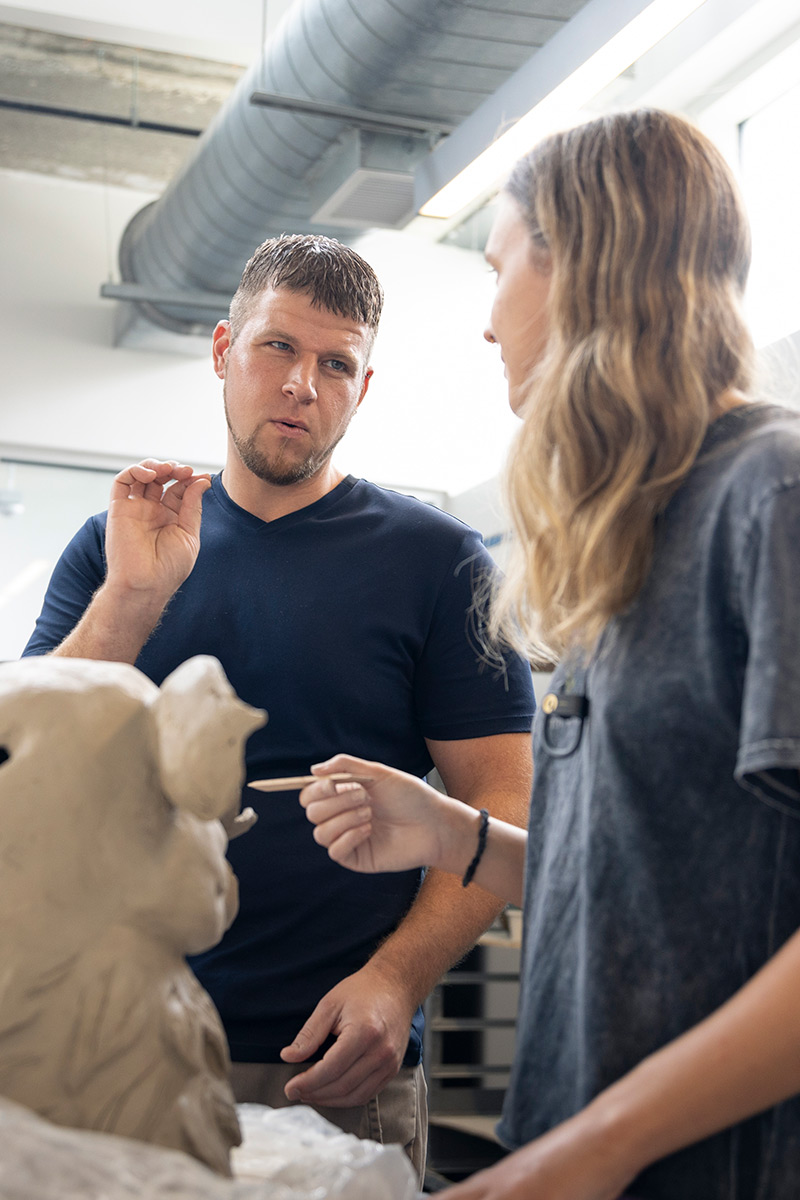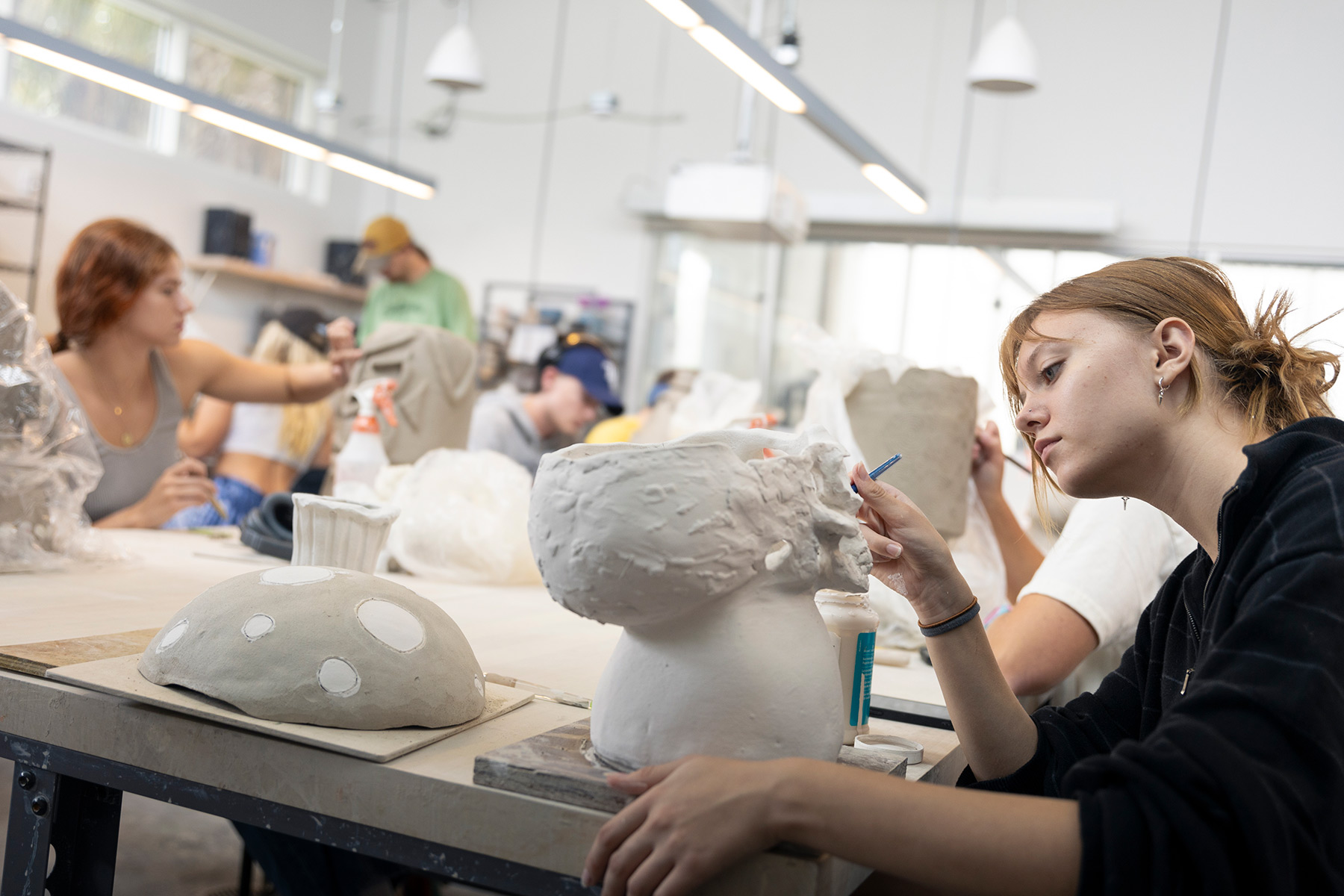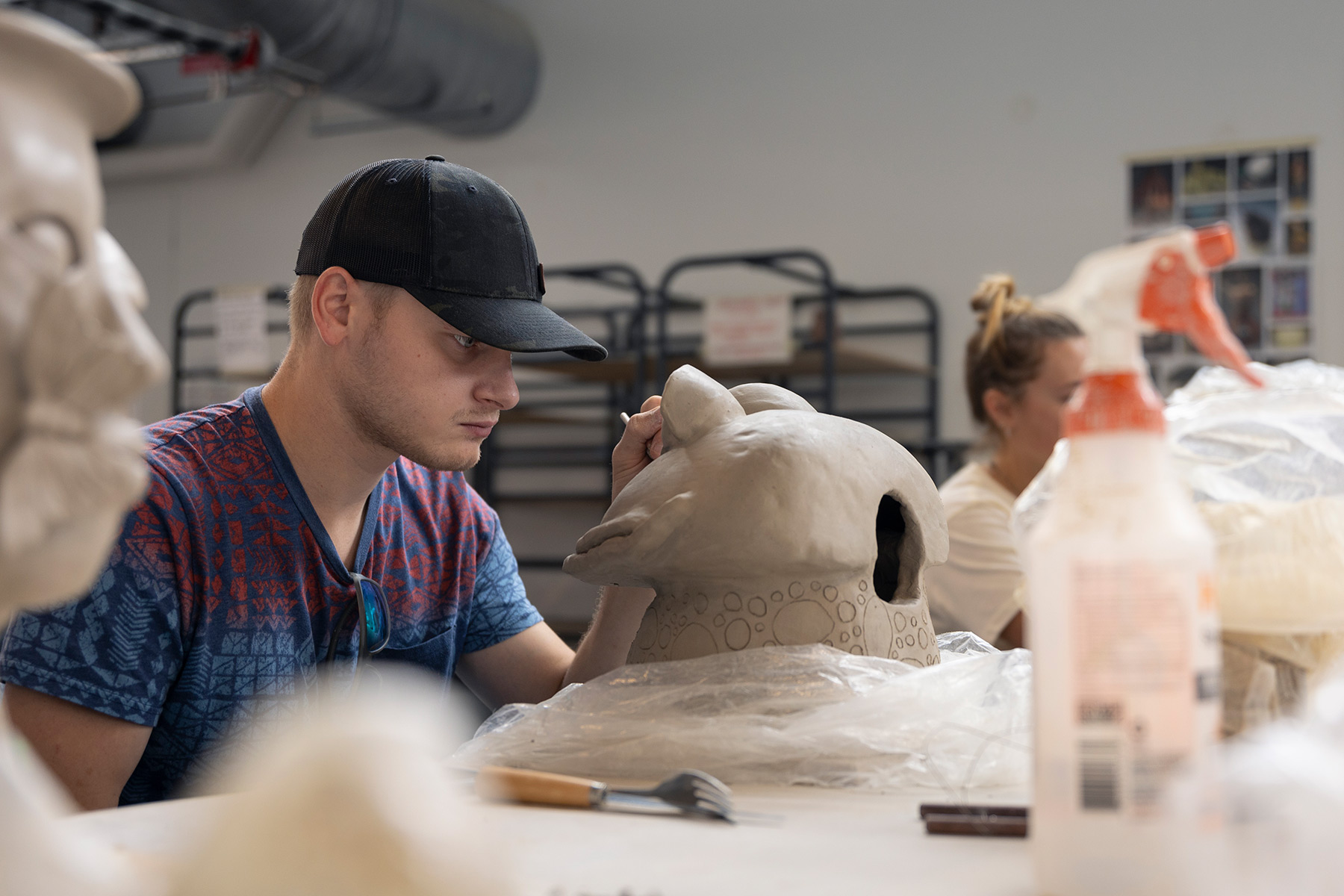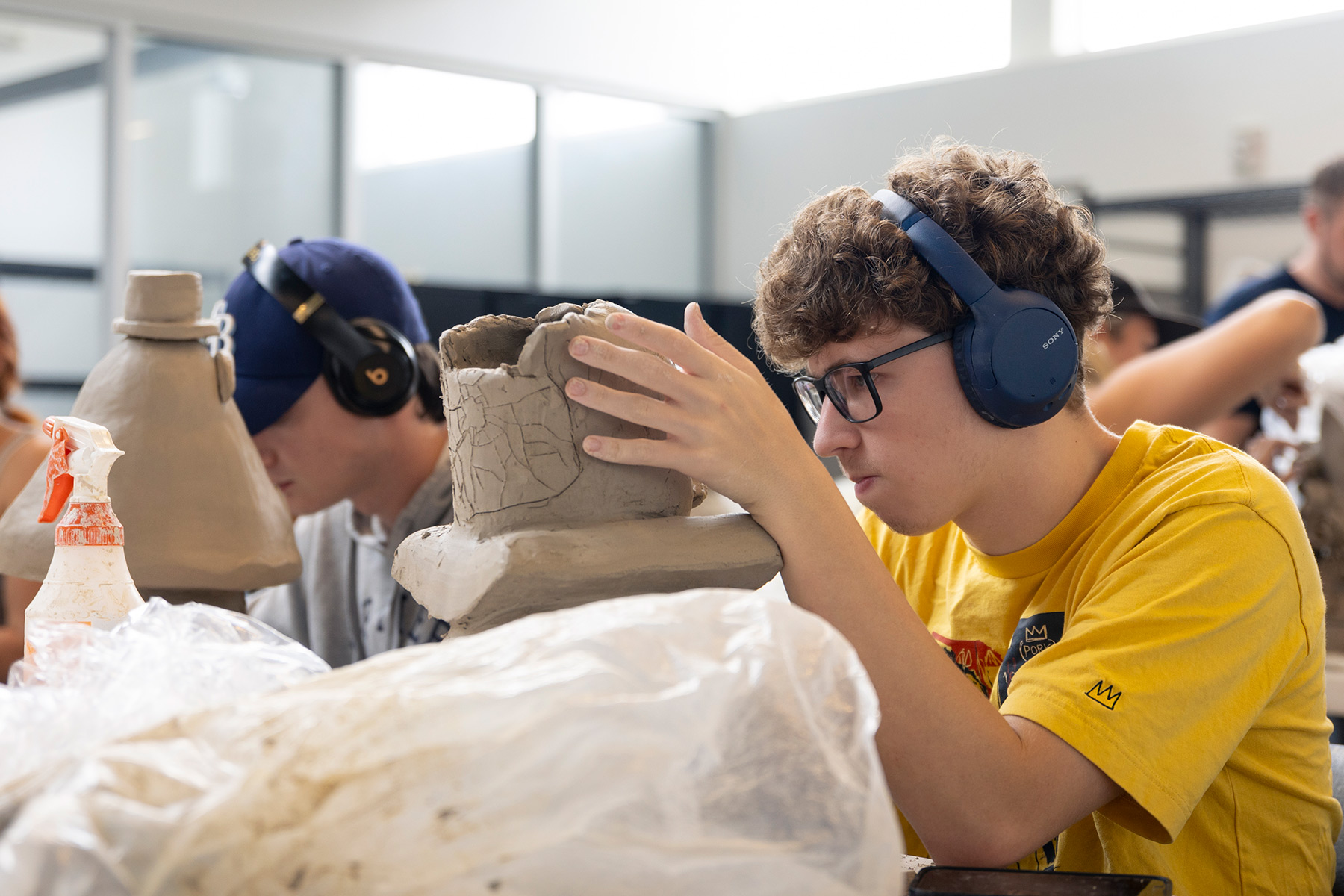Assistant Professor of Visual Arts Tony Baker, who is beginning his first year of teaching at Eckerd College, was born and raised in one of the poorest neighborhoods in Sacramento, California. “Recognizing the value of education, my mom used a different address to enroll me in good schools,” he explains. “The high school I attended had a good art program. I enrolled in all the art classes, honing my skills, particularly in photorealistic drawing.
“However, after high school, I lost my way. I started spending time with people from my struggling neighborhood—individuals fighting to make ends meet and deal with life’s struggles. Those were challenging times, marked by numerous difficult experiences. Hoping to turn my life around, I made the choice to enroll in a local community college and began immersing myself in art classes. It was within one of those classes that I discovered ceramics—a creative outlet that finally allowed me to express the things I had experienced and witnessed throughout my life.”
Baker moved 400 miles south to pursue his bachelor’s degree in fine arts at California State University at Long Beach. That decision, he says, marked another turning point in his life. “I spent long hours in the studio, typically ranging from 12 to 16 hours a day. I distinctly recall a year where I took only two days off, due to a back injury. It was during this time that I laid the foundation of my skills and developed my identity as an artist, all while gaining a deeper understanding of myself.
“Art, for me, became a therapeutic outlet,” he adds. “During my time in Long Beach, I had the privilege of working with several esteemed artists, an experience that propelled my growth. This journey eventually led me to Alfred University in western New York for my MFA, one of the top-ranked ceramics schools in the country.”
Most recently, Baker was an adjunct professor at Barry University in Miami Shores and an artist-in-residence at the Armory Art Center in West Palm Beach. On October 7, his exhibition In Case of Emergency will open for a two-month showing in Los Angeles at the Torrance Art Museum.
His research interests include studying the ways in which the environment, culture and society make impacts—both internally and externally. “I examine the powerful cultural, political and socioeconomic forces that shape identity and determine morals, values and life trajectories,” he says.
Case in point: his creation of very realistic (and very oversized) ceramic work boots.
“Those boots are modeled after actual work boots, the same kind my brother used for his labor job and that I wore in the cold of New York,” he explains. “They stand as a symbol of the working class. My work incorporates both abstract and realistic elements. I deliberately choose recognizable objects because of the immense power they hold, conveying a multitude of messages with a single item.
“However, I carefully curate my work to guide the viewer’s thoughts; so my work is never just a single object. Objects carry both personal and societal meanings—holding memories, nostalgia and stereotypes—all perceived differently from person to person. They hold varied meanings depending on who is looking at them; your interpretation of them as hiking boots is absolutely valid. In art, everything translates uniquely, shaped by the observer’s perspective.”
To see Baker’s ceramic work boots and some of his other work, visit tonybakerart.com.
Baker, whose Fall 2023 course list includes Clay I and Throwing on the Potter’s Wheel, adds that he hopes his students “learn how to work with and manipulate the material, enabling them to bring any vision to life and understand the unlimited applications clay offers. Moreover, I aim to guide them in expressing themselves and addressing significant worldly matters through this versatile medium.”
The learning experience, he says, “completely changed my life. It saved my life. It helped me find a purpose. It’s hard to believe that I am where I am today. It was literally one day at a time. It wasn’t easy, and I made a lot of sacrifices. I want to help my students change their lives, just like mine was transformed.”
When deciding to come to Eckerd, Baker says there were several factors. “The facilities, the funding, the faculty, the students, the culture, the class size and, of course, the location. Eckerd seemed to be a good choice after considering all of this. And it’s hard to complain about living by the beach.”





